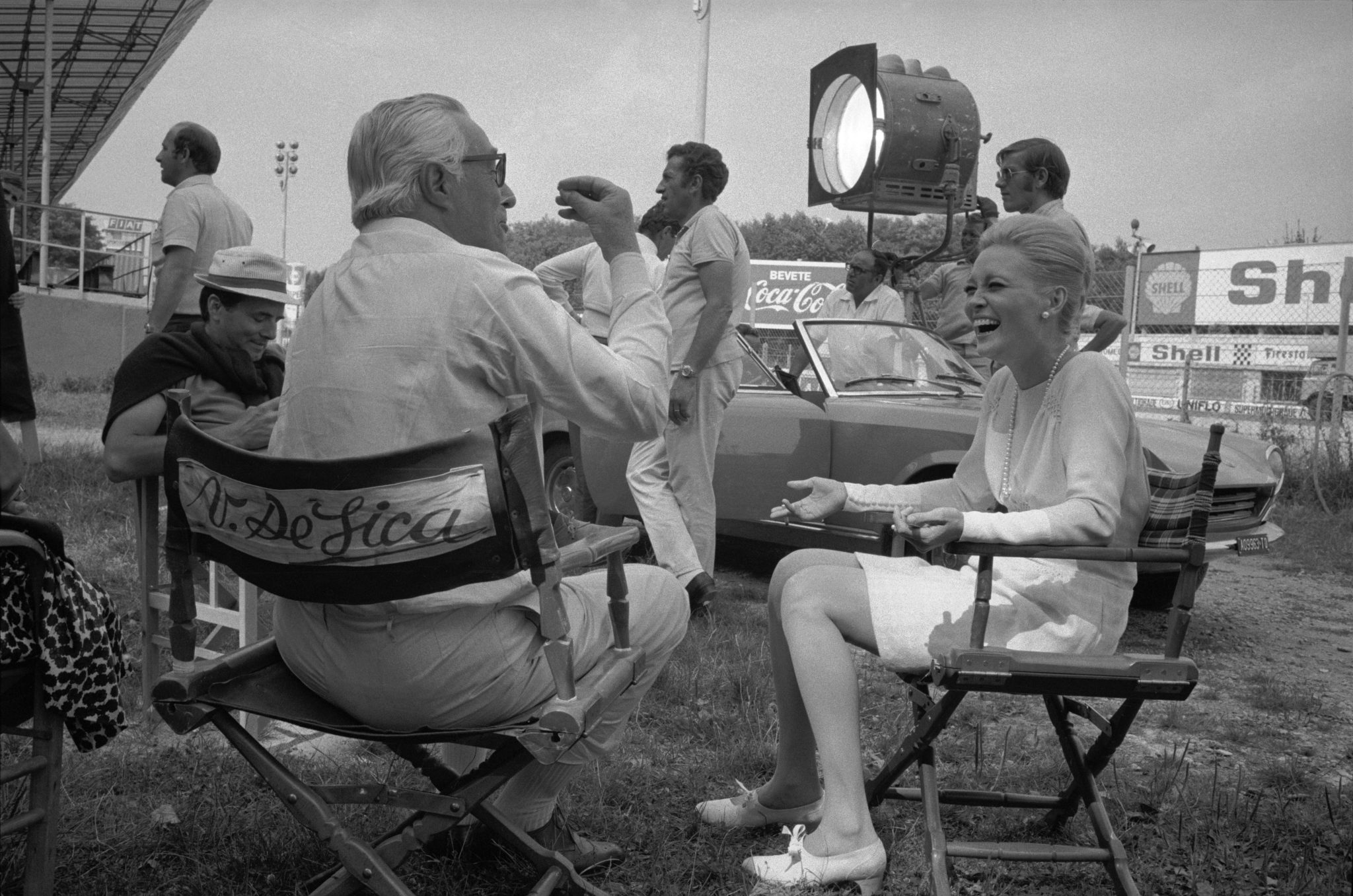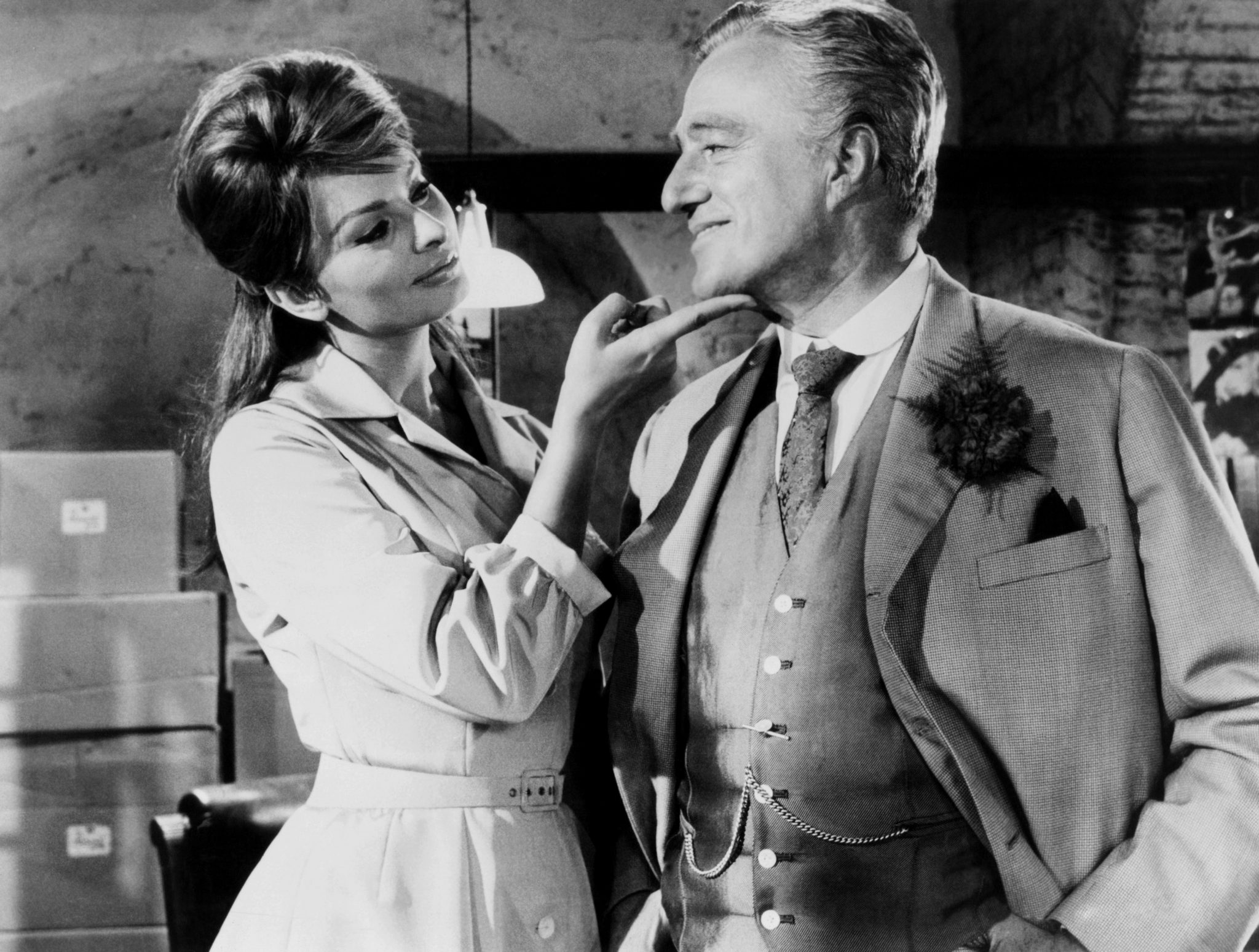In 1923 a young high school graduate was hired by the Bank of Italy. That day, the movie industry almost lost one of its brightest stars. The young accountant Vittorio was really talented: he had an amazing voice and he loved to sing. So, when a friend told him that Tatiana Pavlova’s company was looking for new actors, Vittorio asked his father for permission. If Mr. Umberto D had said “no”, we wouldn’t have met Vittorio De Sica, great Italian actor and director. But luckily for us, Mr. Umberto said yes. In facts, he was the one who pushed Vittorio to quit his safe job to take a chance in the risky show business.
«I was born in Sora in 1901, July the 7. So, I am “ciociaro”, not to say a boor.»
Actually, he was none of those things: he had impeccable manners and the noble bearing of a gentleman. Despite his birthplace, he considered himself a true man of Naples, the city he was raised in.
He was a very prolific director (31 movies) and an even more prolific actor (140 different roles). From romantic comedies to neorealistic movies, from the cheerful “Bread, Love and Dreams” to the heart-breaking “Umberto D.”, a film about loneliness and resignation.
He was born for the stage: acting came naturally to him.
«I have earned fame and money following my lethargy.»
In 1932 the audience fell for his interpretation in “What Scoundrels Men Are!”. He played the role of a young man on a bike, in love with a beautiful girl spotted on a tram. The scene of “Parlami d’Amore Mariù”, when he sings and dances, completely outshone the rest of the movie. He hated that scene, but the song is unforgettable. Nobody can think about De Sica without thinking about that song.
Thin, smiling, and classy, he was the perfect fit for romantic comedies. But he quickly grew tired of playing the charming man in a suit, so he became a director: in 1948 the movie Shoesine rewarded him with the Oscar, the first of four Academy Awards. It was no longer set in a classy apartment with fancy ladies, but in the streets, among poor people struggling to survive after the war. De Sica will be a leading figure in Neorealism, the new, honest and raw style of Italian cinema. But he needed to raise funds: Hollywood’s majors agreed to produce “Bicycle Thieves”, but they demanded Cary Grant in the leading role. De Sica kindly declined the offer and he chose an untrained factory worker as the leading actor.

Despite his frenetic job as a director, he never quit acting: he needed money, and he genuinely loved being an actor. In 1953 he started the “Love, bread and…” saga. Maresciallo Carotenuto is definitely De Sica’s most popular character and the one loved the most by the Italian audience. Everybody remembers the dancing scene with Sophia Loren in a red dress. To her he was a friend, a teacher and a tutor: she won an Oscar as leading actress directed by De Sica in “Two Women”.
He played some unforgettable characters that portrayed the Italian post-war society: ruined noblemen, fraudulent lawyers, rascals. He was tall and elegant, with silver hair and a moustache: he looked like a nobleman, but he often played the rascal. This peculiar contrast was his great strength as a comedian. The perfect example is “Il Conte Max”, the story of an elegant – but broke – earl who teaches the young Alberto Sordi how to behave like a gentleman, while in fact attempting to steal his savings.

De Sica had his bad habits, too: he was a compulsive gambler and he lost a lot of money at the gambling table.
«The secret of a true gentleman is to gamble as there is nothing to lose.»
He was a perfect gentleman in casinos, too: he never lost his temper, not even when he lost everything, including his staff’s salary. The journalist and writer Eugenio Scalfari’s father was the chief of the Sanremo’s casino. Vittorio De Sica was one of his best clients, and he visited Scalfari’s family once or twice, when the journalist was only a boy. Eugenio Scalfari later recalled De Sica playing the piano in their living room:
«He was very elegant. I was impressed by his white spats. My father one day told me that De Sica was given a train ticket by the casino, because he didn’t have the money to come home.»
De Sica was the loving father of two families: he first married Giuditta Rissone, mother of Emi, then the actress Maria Mercader, mother of Manuel and Christian, who is also an actor, like his father. He died in 1974, in Paris: the night before, he asked to see a movie. Not unexpected: he spent his whole life making films.
What’s unexpected is the film he chose: Ben Hur. This is the unpredictable Mr. Vittorio D.







